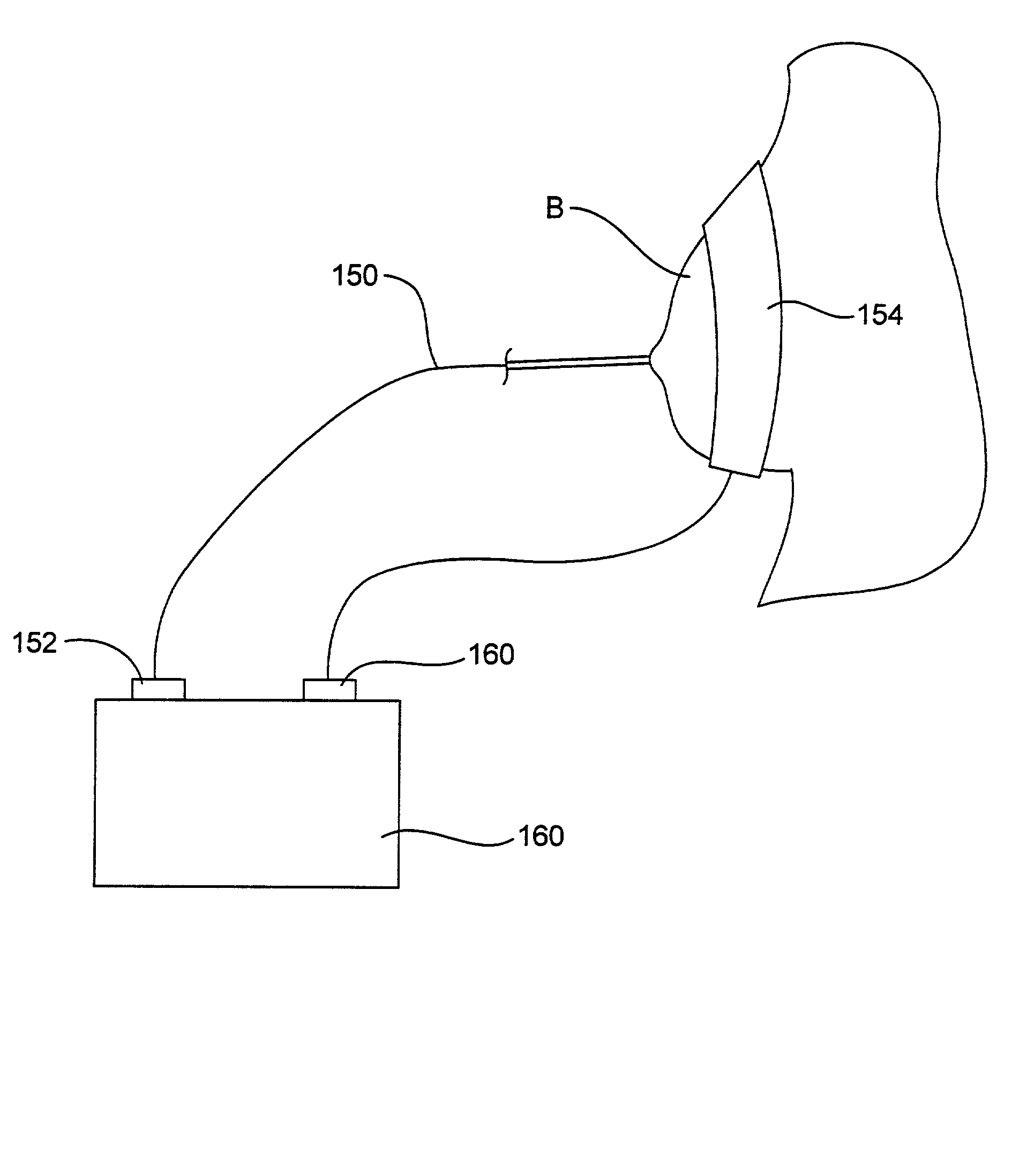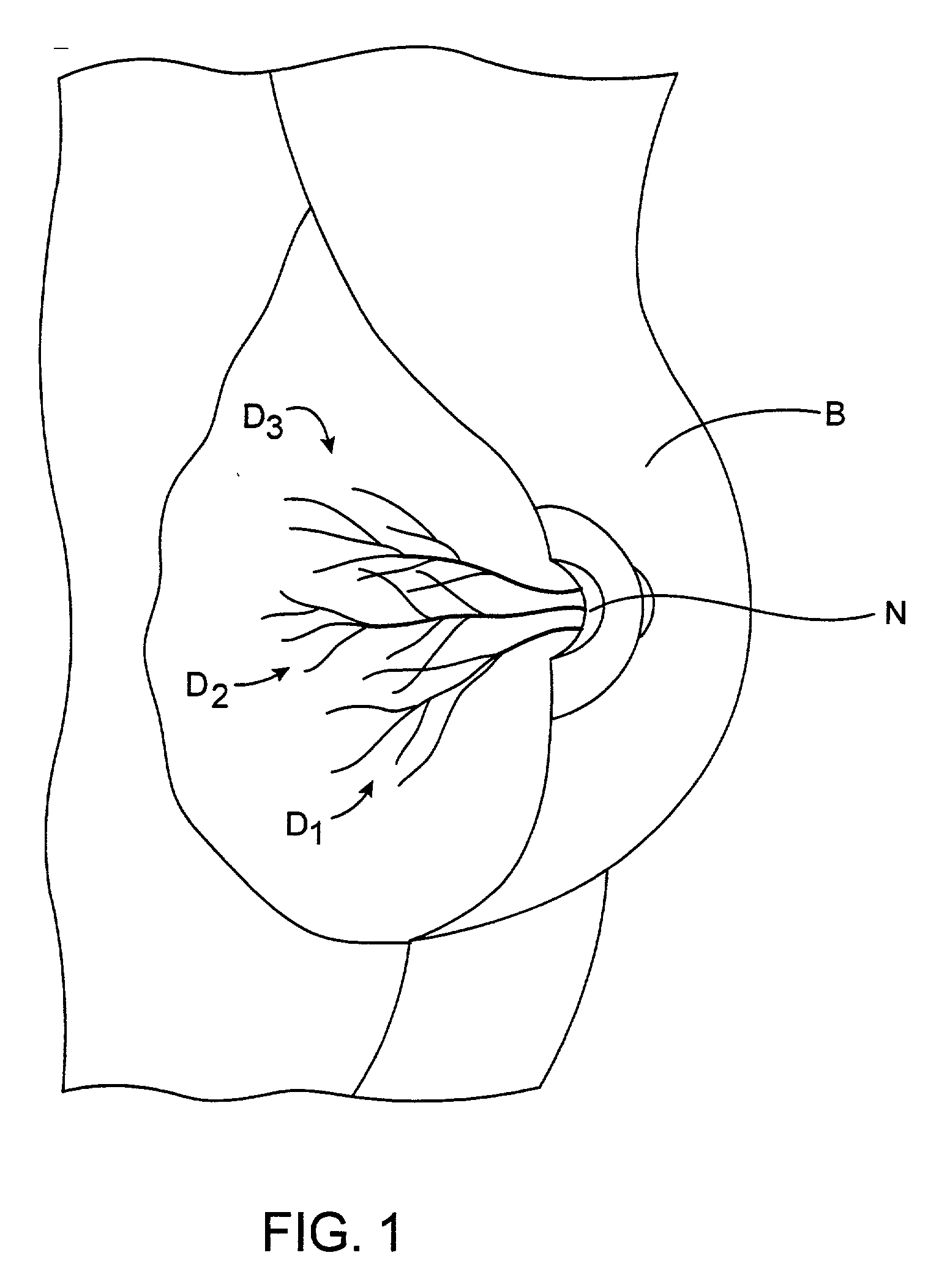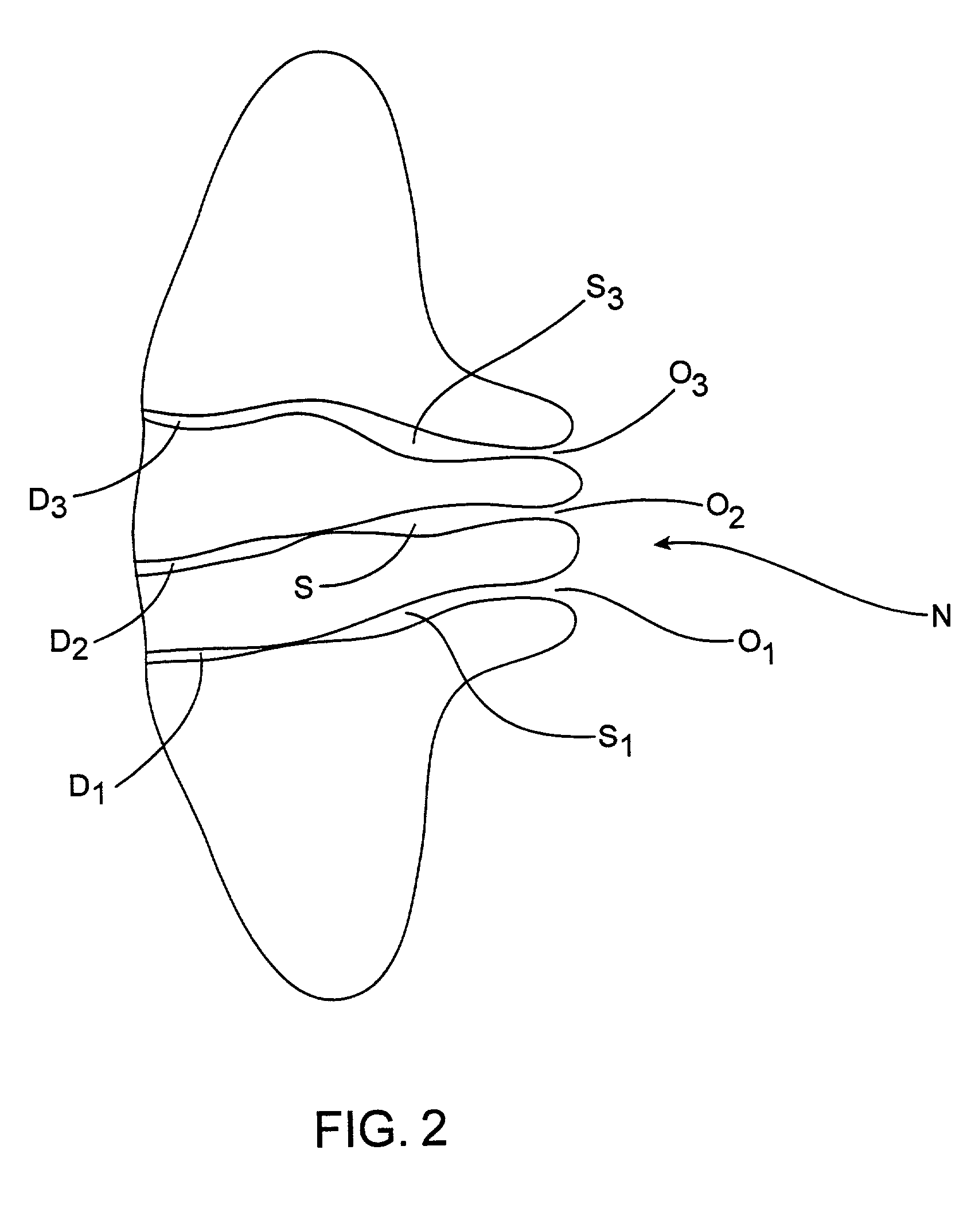Methods and systems for treating breast tissue
a technology of breast tissue and ductal tissue, applied in the field of breast tissue medical methods and equipment, can solve the problems of reducing the toxicity of gadolinium, destroying the ductal system that contains the resonating fluid or material, and ablation of the ductal tissue that contacts the agen
- Summary
- Abstract
- Description
- Claims
- Application Information
AI Technical Summary
Benefits of technology
Problems solved by technology
Method used
Image
Examples
Embodiment Construction
[0050] The present invention comprises methods, systems, and kits for treating the cellular linings of ductal networks in a human or animal breast. A typical breast B, as illustrated in FIG. 1, includes a nipple N and from six to nine ducts D. Three ductal networks D.sub.1-3 extending inwardly from the nipple N into the breast tissue are illustrated. As best seen in FIG. 2, each ductal network D.sub.1-3 begins with an orifice O.sub.1-3 which lies at the surface of the nipple N and extends inwardly through a ductal sinus S.sub.1-3 and then into a branching network. Each network D comprises a series of successively smaller lumens which are arranged in complex, three-dimensional patterns. The networks of each duct will overlap within the breast tissue but will not be interconnected. The total volume of each network is usually in the range from 0.1 ml to 0.5 ml, but the walls are somewhat compliant so the internal volume may increase as fluid is introduced. The treatment methods of the ...
PUM
 Login to View More
Login to View More Abstract
Description
Claims
Application Information
 Login to View More
Login to View More - R&D
- Intellectual Property
- Life Sciences
- Materials
- Tech Scout
- Unparalleled Data Quality
- Higher Quality Content
- 60% Fewer Hallucinations
Browse by: Latest US Patents, China's latest patents, Technical Efficacy Thesaurus, Application Domain, Technology Topic, Popular Technical Reports.
© 2025 PatSnap. All rights reserved.Legal|Privacy policy|Modern Slavery Act Transparency Statement|Sitemap|About US| Contact US: help@patsnap.com



